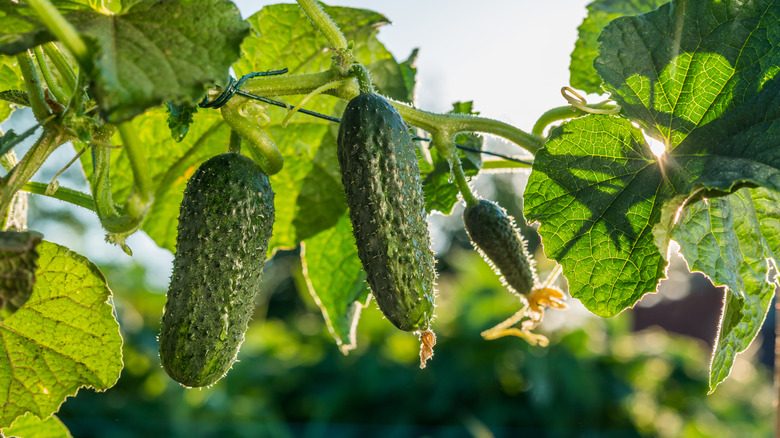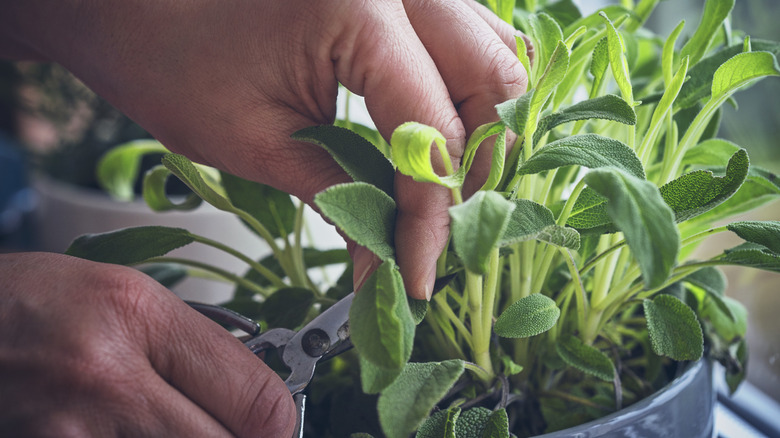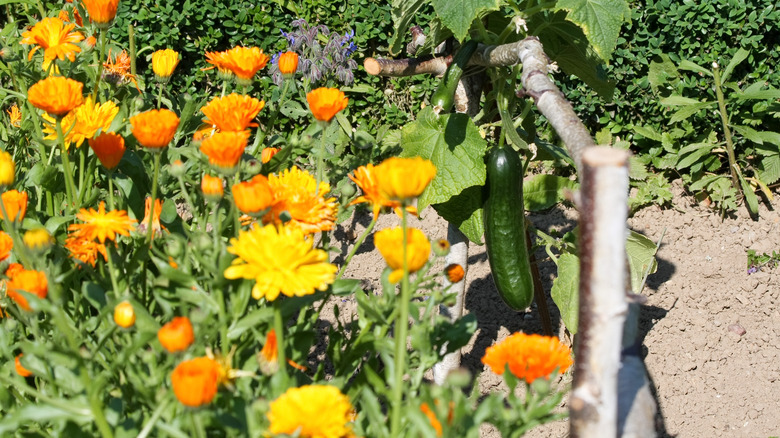The Popular Herb You Should Avoid Planting Too Close To Cucumbers
Cultivating certain crops next to each other can improve one or both of the organism's life. The process is called companion planting. The side-by-side plants create a commensal or mutual symbiotic relationship, meaning one or both parties benefit from their involvement. The right companion plant can serve as a natural pesticide and pollinator magnet. Its presence improves soil quality and encourages growth for the main foliage. Some companion plants even make their neighboring crops taste better.
Sage is a great companion herb for many plants like carrots and cabbage, as it repels insects. But it is not a friend of cucumbers. The herb hinders the cucumbers' growth. You can end up with lots of sage for garnish but little of the cylindrical fruit for salads or vice versa. For a rich and tasty harvest, make sure your cucumbers are in bed with the proper seedlings.
Sage and cucumbers don't make good companions
Sage and cucumbers are better kept apart. Next to each other, the plants compete for resources like space, nutrients, and water. The herb grows fast and can seize its neighbor's property. However, cucumber vines can also dominate the area, leaving little room for the herb to flourish. Sage needs lots of sunlight, and cucumbers can block light and airflow, potentially killing out the sage plants.
Their different water needs also create complications. Sage requires less water than the fruit. It can drown in the excess from the cucumbers. Plus, the aromatic's strong fragrance encroaches on cucumbers, changing the taste of the fruit.
Your garden can still house this herb and fruit, but they should be as far apart as possible. If space is limited, try planting the sage in a flower pot. It makes a terrific green spice for an indoor kitchen garden. Leave your cucumbers outside. They can still benefit from a companion.
What to grow alongside cucumbers
Dill is a great herb to fill the vacant spot next to your cucumbers. This green garnish will attract parasitic wasps. It sounds unwelcoming, but these insects don't harm the cucumbers. Instead, the wasps keep away pests like beetles that want to harvest the fruit before you get the chance. Plus, reaping is a breeze when you're ready to make dill pickles.
Marigolds are another natural pesticide for your cucumbers — they even keep away deer. The orange petals are beautiful next to the yellow blooms of the cucumber plant. Same with sunflowers. You'll have a gorgeous garden that attracts pollinators. In addition, the strong stems of the sunflower also give the cucumber vines something to climb, making them a perfect choice for smaller yards.
For added nutrients, try planting green garlic next to the cylindrical fruit. It can boost nitrogen, phosphorus, potassium, calcium, and manganese in the soil. The cucumbers will soak it right up.


